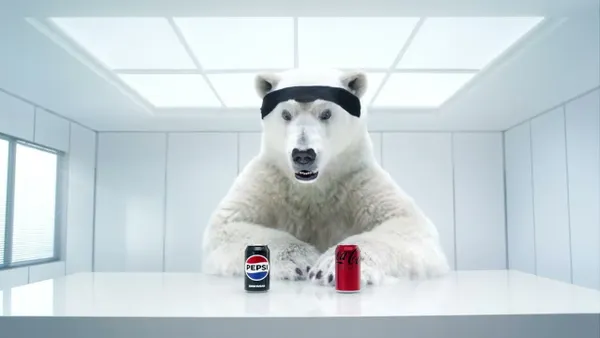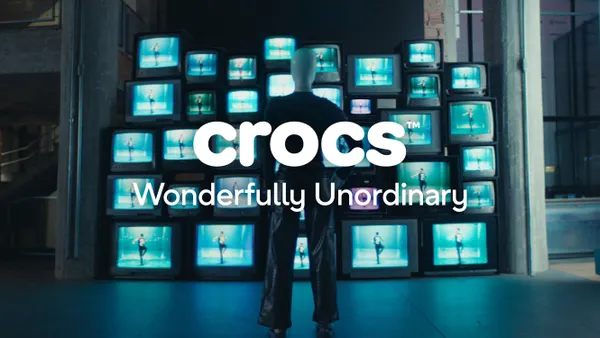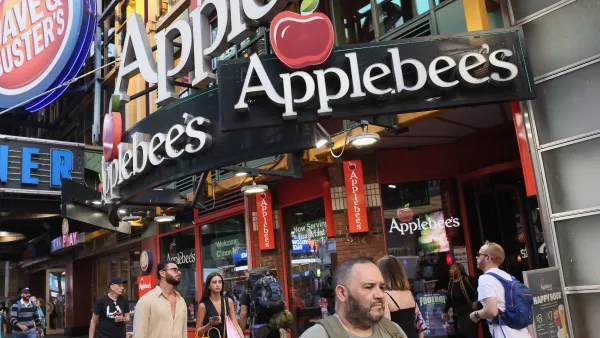UPDATE: Jan. 25, 2023: M&M's has confirmed that its characters will remain its spokescandies, with the "indefinite pause" part of a storyline that will resolve with an appearance in the brand's Super Bowl ad, per details shared with Marketing Dive. As part of the storyline, Maya Rudolph stars in a new 15-second ad, the Orange M&M hosts a meditation-themed Spotify playlist and the Yellow M&M tries to be a spokescandy for Mars sibling Snickers, with more "unique journeys" to follow.
M&M's will take an "indefinite pause" from its spokescandies, per a statement posted on Instagram. In their place, the Mars Wrigley candy brand has made actress Maya Rudolph its new spokesperson and "Chief of Fun," per details shared with Marketing Dive. Rudolph's first appearance with the brand will be in its upcoming Super Bowl LVII campaign. The spokescandies will "step away to pursue other passions.”
M&M’s decision to move away from its spokescandies in its marketing represents a major shift in strategy for the candy brand, which has worked to highlight themes of inclusion and diversity since first rebranding its line of colorful mascots last January.
While the move could prove to be a playful misdirect to build buzz for its Super Bowl spot, it seems doubtful that the brand would toy so directly with the controversy that the rebrand has drawn, mostly from conservative commentators who view the changes to the candies as a paean to so-called "wokeness."
"America, let's talk. In the last year, we've made some changes to our beloved spokescandies. We weren't sure if anyone would even notice. And we definitely didn't think it would break the internet. But now we get it — even a candy's shoes can be polarizing. Which was the last thing M&M's wanted since we're all about bringing people together," reads a statement on the brand's Instagram.
As part of the shift in strategy, M&M's have tapped actress Maya Rudolph as a new brand spokesperson who is set to appear in the brand's previously announced Super Bowl spot. Press materials in December that revealed Mars' Super Bowl plans included a silhouette of the spokescandies on a football field, suggesting that the mascots were initially part of the big game spot. Mars Wrigley sat out Super Bowl LVI in 2022.
"M&Ms announcing that they’re getting rid of long-standing and (mostly) beloved mascots because of peer pressure is newsworthy," said Steve Merino, chief creative director at Aloysius Butler & Clark in emailed comments. "That being said, many brands use their Super Bowl moment as a chance to pull a publicity stunt. Remember when Planters faked getting rid of Mr. Peanut? We’ll see if this is real, or just a thin candy shell.”
M&M's will share more on the spokescandies' "new pursuits" over the next few weeks, according to a brand spokesperson.
The Mars Wrigley candy launched the rebrand of its spokescandies in January 2022, highlighting inclusivity, belonging and the "nuanced personalities" of the characters. The rebrand proved polarizing, but the brand was undeterred, doubling down on purpose and introducing a Purple spokescandy in September. The brand this January began selling candy packs that exclusively feature its female brand mascots, drawing fresh ire from conservative commentators.
When introducing Purple, M&M's seemed to take the controversy in stride, noting how the rebrand drove media impressions and brand sentiment. Jessica Adelman, vice president for corporate affairs and head of global communications at Mars Wrigley, told Marketing Dive that the attention proved how iconic its brand was.
“People are always going to have reactions — it means you’re relevant, it means you’re in the conversation — and having a purpose helps you to really be clear and true about what motivates you and what your reason to be in the consumer space is," Adelman said.
While M&M’s may be trying to skirt controversy, sidelining its spokescandies could have repercussions as well.
"Strong points of view can build real value in a brand, and going back on that risks telling the people who originally agreed with your point of view that you didn't really care," said Steve Gorski, Forsman & Bodenfors NY head of strategy, in emailed comments. "Commercializing a cause or issue is never a good strategy; it needs to be rooted in your core brand and ideally tied to the way people interact with your products."
Additional reporting provided by Peter Adams














